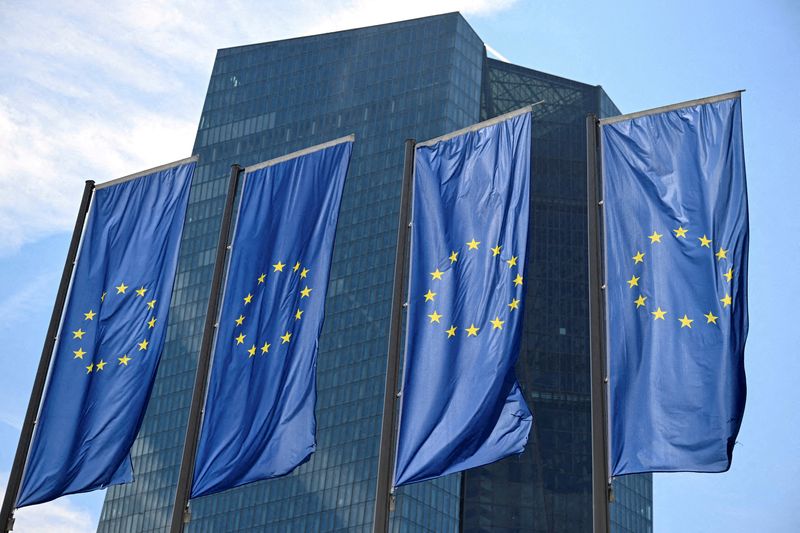By Jan Strupczewski
BRUSSELS (Reuters) - Europe’s investment needs for the green and digital transition, along with defence and research, should use public funds primarily to attract and boost private investment, EU finance ministers said on Monday.
Their statement, which confirms details from a draft seen last week by Reuters, will form part of EU discussions on competing with China and the United States in advanced technologies while cutting CO2 emissions.
Last month, former European Central Bank president Mario Draghi estimated the EU needs up to 800 billion euros ($870.80 billion) in annual investments - up to 5% of its GDP - to keep pace with global rivals.
EU finance ministers said they cannot meet this sum alone, highlighting the need for strong capital markets to draw private funds as public finances have been depleted by multiple crises.
The limited public funds were "best used as a catalyst for leveraging private capital in areas with positive spillovers," the statement said.
Leveraging in this case means using a relatively small amount of EU funds to cover the riskiest parts of a project, thereby drawing private investors to the safer, more profitable segments.
The ministers met on Monday ahead of an EU summit on competitiveness on Nov. 7-8 in Budapest.
They also expressed willingness to spend EU taxpayer money on services and infrastructure that benefit all 450 million citizens across borders, labelling these as EU public goods.
"While private investment is vital, public financing also has an important role to play. European financing should focus on areas where public goods can be more effectively delivered jointly," the statement said.

Germany and other EU nations have rejected further joint borrowing due to debt from the COVID-19 pandemic, but ministers have said cross-border electricity grids are essential in securing lower, stable energy prices for businesses.
($1 = 0.9187 euros)